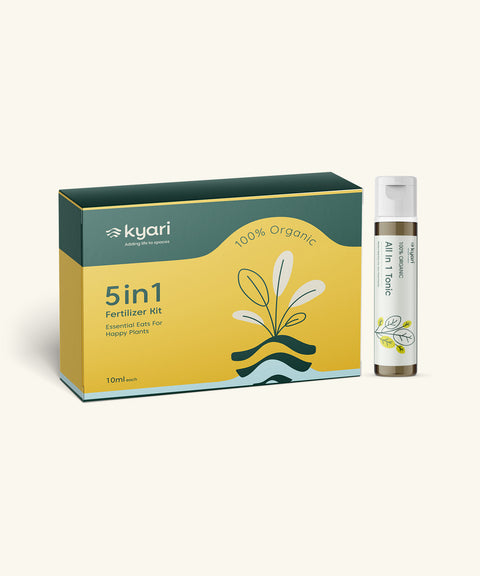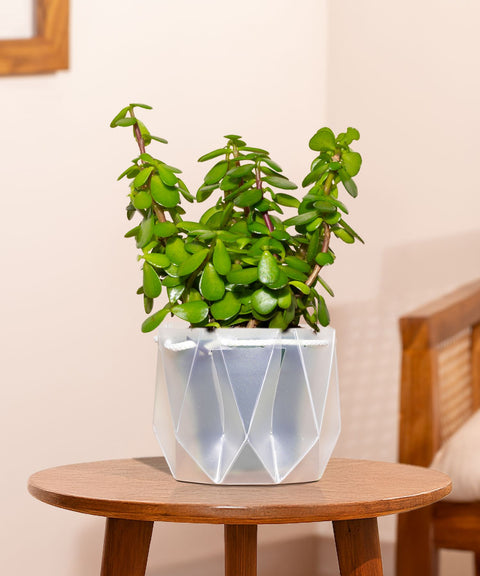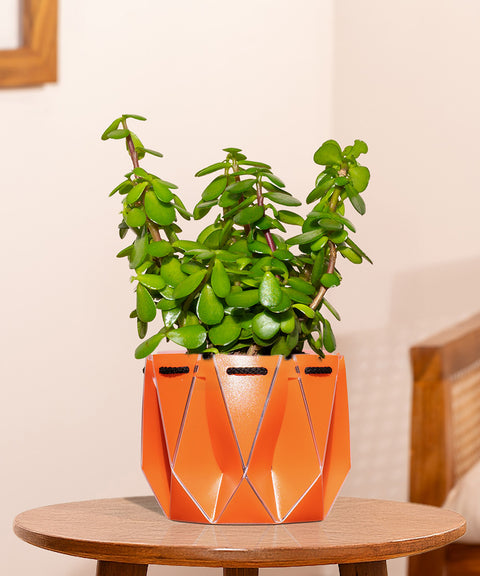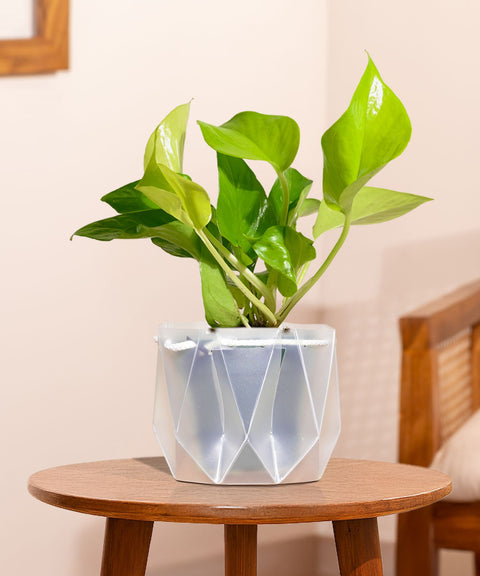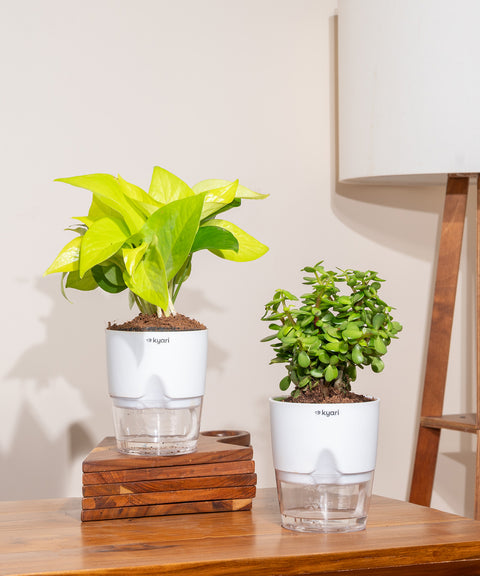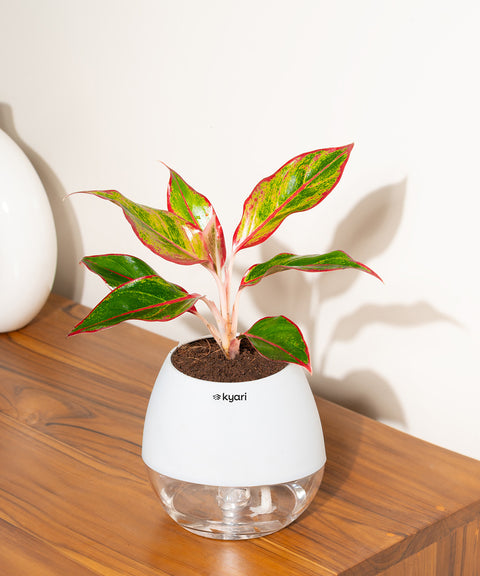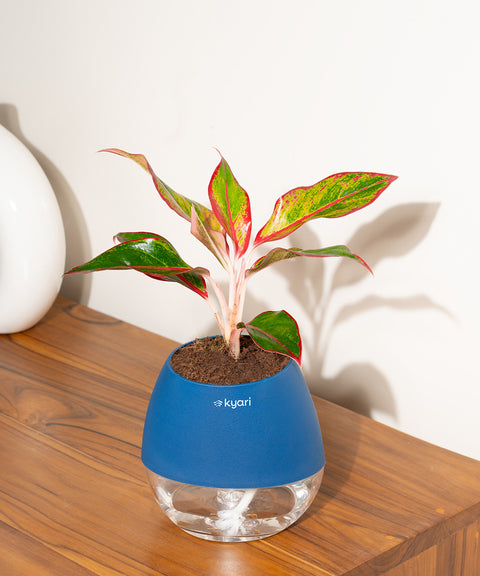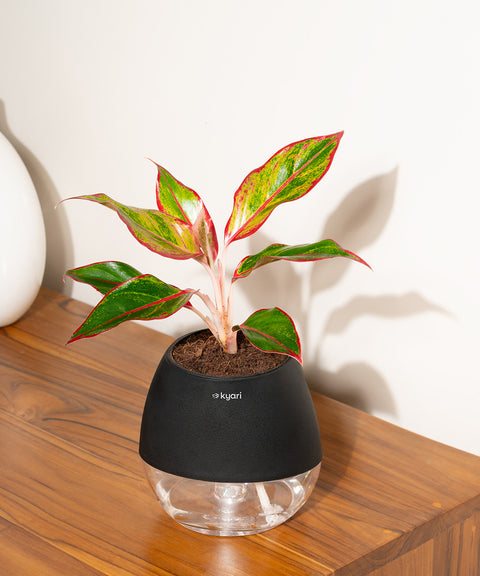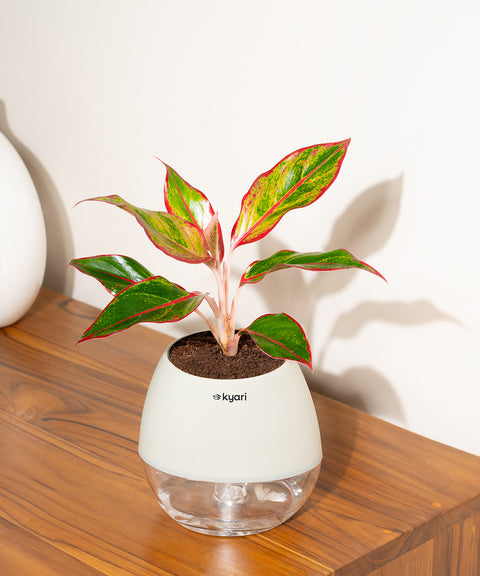Medicinal plant tulsi has gained popularity for its various health benefits across the world. With the growing admiration for ayurveda, the ancient medical science from India, people are rediscovering the various uses and characteristics of Tulsi plant. Having a tulsi plant in our homes has been a part of our culture. Let's explore some tulsi health benefits and understand how you can incorporate tulsi into your day to day life.
10 Tulsi Uses and Benefits
From ancient Ayurvedic texts to modern scientific research, the potential of tulsi has captivated the attention of healers and researchers alike. Here are some tulsi plant benefits that you can gain for yourself:
1. Medicinal Benefits of Tulsi
Has this happened to you? Whether it's a cold, cough, or you are feeling under the weather, mom will give you a tulsi wali chai and you’ll instantly feel better. Apparently, it's not just mothers that swear by the medicinal properties of Tulsi, science has proven it too. Tulsi has many health benefits, including anti-inflammatory effects, antimicrobial properties or increasing immunity. Tulsi medicinal uses are not limited to common cold, even severe health issues like diabetes and asthma can be regulated with Tulsi.
2. Adaptogenic Properties
Tulsi is considered an adaptogen, which means it helps the body to adapt to stressors. So if you have had any change in your environment, both physical and emotional, consumption of tulsi can help you combat the stress better. It may help reduce stress and promote mental clarity. If you are shifting home, switching jobs, or undergoing any change, include tulsi in your daily diet to reduce your stress level.
3. Tulsi is a Strong Antioxidant
Tulsi contains phytochemicals like flavonoids and phenolic compounds, which have antioxidant properties. As you know, foods rich in antioxidants are good for our overall health, including skin, hair, eyes and mental wellness. Regular consumption of tulsi leaves can reduce the oxidative stress on the body, boosting your overall health.
4. Skin Benefits of Tulsi
One of the major uses of tulsi leaves is for healthy and glowing skin. Owing to its antioxidant properties, tulsi can prevent acne and pimple, giving you a clear skin. Another importance of tulsi for skin is that it helps in treating skin infections.
5. Anti-inflammatory Effects
Tulsi has anti-inflammatory properties that may help reduce inflammation or swelling in the body. Consumption of Tulsi leaves is considered beneficial for conditions like arthritis or inflammatory bowel disease.
6. Respiratory Health
Tulsi is often used in Ayurvedic remedies for respiratory ailments like coughs, colds, and asthma. Owing to its anti-inflammatory properties, it may help alleviate symptoms like congestion, and promote respiratory health. Tulsi is specially recommended to elders during season change.
7. Antimicrobial Benefits of Tulsi
Tulsi is known for its antimicrobial properties. It is also known to improve immunity. Tulsi can inhibit the growth of bacteria, viruses, and fungi, and is used to treat infections. It may even be used topically to treat skin infections. Not just for the skin, antimicrobial properties of tulsi are beneficial for our gut health as well. Tulsi is thought to aid digestion and relieve gastrointestinal issues like bloating, gas, and indigestion.It’s antimicrobial properties help fight off harmful bacteria in the gut.
8. Use of Tulsi for Cardiovascular Health
Many studies have suggested that tulsi has beneficial effects on cardiovascular health by lowering blood pressure, reducing cholesterol levels, and improving circulation. Elevated levels of cholesterol, particularly LDL cholesterol or "bad" cholesterol, can contribute to the increased risk of cardiovascular events. Studies have indicated that tulsi may help lower cholesterol levels, especially LDL cholesterol.
9. Anti-diabetic Properties
Tulsi may help regulate blood sugar levels in people with diabetes by stimulating insulin secretion and improving insulin sensitivity. It is suggested that people with diabetes should chew a few leaves of tulsi, on an empty stomach.
10. Tulsi for Weight Loss
The cholesterol-lowering effects of tulsi are attributed to its ability to enhance the metabolism of lipids and inhibit the absorption of cholesterol in the intestine.
If you are looking for a natural fat cutter with no side effects, Tulsi is your hero. Tulsi is known to have the ability to enhance the metabolism of lipids. This means, consumption of tulsi can increase fat burning.
Uses of Different Types of Tulsi Plants
Tulsi, or Holy Basil, is a subspecies of Basil plant. There are a few common varieties of tulsi that you can grow in your garden.
- Rama Tulsi, your common green leaf tulsi, distinguishes itself with light purple flowers and a fragrance reminiscent of cloves. This is the variety commonly found in Indian homes. This variant contains eugenol, a compound that is also found in cloves, contributing to its gentle flavour profile. Renowned for its therapeutic properties, this type of tulsi is used for treating various infections such as throat infections, respiratory issues, and skin ailments.
- Krishna Tulsi, also known as shyama tulsi, is known for its unique dark purple leaves. This variety has a clove-like aroma and imparts a peppery taste sensation. The oil derived from Krishna Tulsi serves as effective ear drops and is used in ayurvedic medicines of conditions like malaria, indigestion, insomnia, and cholera.
- Vana Tulsi, or wild tulsi is indigenous to India, Sri Lanka, and certain parts of Africa. It holds significance in both medicinal practices and religious beliefs. Cultivated primarily for its medicinal benefits, Vana Tulsi thrives in full sunny and dry environments. It has light green leaves and a lemony fragrance.
Religious Importance Of Tulsi Plant
Tulsi plant is given a special status in Hindu religion. As per the mythological belief, tulsi is considered as the reincarnation of goddess Laxmi. Festival of Tulsi vivah, in which tulsi is married to Lord Vishnu, is celebrated in many parts of India.
Tulsi leaves are used in various religious rituals and ceremonies, and are also offered as Prasad in temples.
Importance of tulsi extends to other religions, as well, including Jainism, Sikhism, and modern spiritual practices.
You can buy Tulsi plants online from Kyari and gain tulsi plant benefits for yourself. Kyari is a one-of-its-kind online platform for all your gardening needs. From indoor plants to outdoor plants to medicinal herbs, you can find plants for all your needs on Kyari. We, at Kyari, aim to promote adding a dash of greenery to your abode.
FAQs on Tulsi Health Benefits
1. Which Tulsi is most powerful?
In terms of tulsi medicinal uses, krishna tulsi is known to have the most benefits. Religiously, rama tulsi is considered to be more sacred.
2. Which tulsi is best for home?
All three kinds of tulsi can be grown in home gardens for their medicinal value and benefits.
3. What care should be taken for tulsi plants?
Tulsi plant is durable, and does not require any special care. Plant it in well draining soil and keep it in a sunny spot. If you live in regions with extreme winter, keep the tulsi plant indoors during the winter months.








 Limited Time Deal
Limited Time Deal
 BYOB - Small Plants
BYOB - Small Plants











